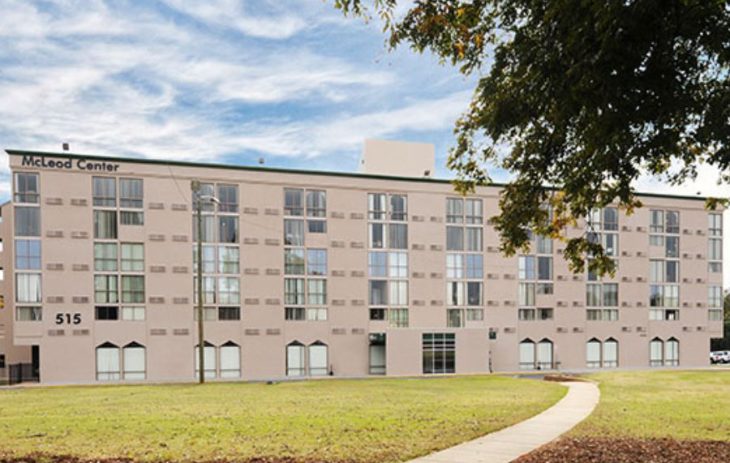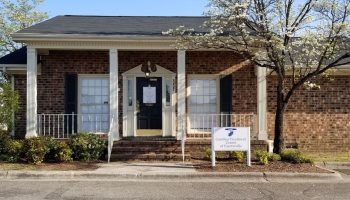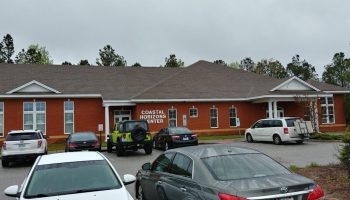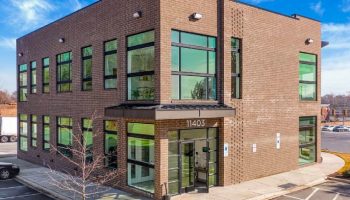About McLeod Addictive Disease Center
McLeod Addictive Disease Center offers substance abuse treatment in Charlotte, North Carolina. They provide residential and outpatient services, depending on your unique recovery goals. They also offer virtual services, providing more flexibility for guests with scheduling conflicts.
Medication assisted treatment (MAT) is available at their Archdale Drive location in Charlotte, to help lessen withdrawal symptoms and reduce drug cravings for those experiencing opioid or alcohol addiction. They use FDA-approved medicines along with counseling to address contributing factors and root causes of substance abuse.
Focusing on Life Skills
Their treatment provides relapse prevention methods and coping skills that can help you after completing care. Before leaving, you’ll have a solid plan to continue recovery.
Case management is on site to provide connections to outside agencies and resources for ongoing care. They can help with healthcare, housing, insurance and transportation. Your case manager will meet with you at least once a month and link you with any additional resources you need.
Community Programs for Criminal Justice
They also work with the community criminal justice system to address addiction needs and reduce incarceration rates. Care managers monitor and provide random drug screens to ensure guests follow the program. They report your progress to the courts while developing care plans and providing supervision.
The center’s drug education school offers an option for first-time offenders to get treatment and receive conditional discharge of their drug convictions. The 15-hour program helps guests understand how substance use affects thinking patterns and relationships.
Aftercare in Charlotte, NC
McLeod Centers include aftercare treatment in their program to assist with ongoing rehabilitation needs. Guests have a six to eight-week timeframe where they maintain a connection with support services while also going back to typical daily activities.
Levels of Care
-
Inpatient
Inpatient and residential programs provide round-the-clock medical and emotional support as you live at the treatment facility. This level of care may be recommended if you have severe addictions or mental health conditions since it removes outside distractions and allows you to focus solely on therapy.
-
Outpatient
In outpatient therapy, you’ll attend therapy sessions several times each week while living at home. This is ideal if you have a strong support system and a lower risk of relapse. Outpatient treatment offers flexibility to maintain work, school or family obligations.
-
Aftercare
Aftercare programs provide ongoing support after you complete a rehab program. They may include several components to help you maintain sobriety including therapy, community support groups and relapse prevention strategies. This gives you a network of resources as you reintegrate into your daily life.
Detox Service Setting
-
Inpatient Detox
Inpatient detox occurs in a dedicated treatment facility. You’ll live there around the clock and receive intensive medical support and supervision to help manage your withdrawal symptoms. It is suitable for individuals with moderate to severe addictions as it ensures a stable detox environment.
-
Outpatient Detox
Outpatient detox gives you access to medically supervised withdrawal services while still allowing you to live at home. You’ll attend a clinic for treatment and monitoring. This flexible option is suitable for those with mild to moderate withdrawal symptoms who have strong support systems.
Programs
-
Adult (18+)
Adult programs address the substance use and life challenges specific to adults. Therapists can deliver sessions in individual, group and family settings. Services often include job support and life skills training in a structured environment.
-
Alcohol Detox
Alcohol detox programs offer medical support to help individuals withdraw safely from alcohol. Your care team may use medications to ease your symptoms and provide medical monitoring to address complications.
-
Cognitive Behavioral Therapy
Cognitive behavioral therapy focuses on changing harmful thought patterns and behaviors associated with addiction. You’ll learn healthier coping mechanisms by identifying and replacing negative thoughts. This improves your emotional resilience and decreases your relapse potential.
-
Drug Detox
Drug detox programs support individuals who are withdrawing from addictive substances like cocaine and heroin. Medical support helps you manage symptoms in a controlled and safe environment so you can achieve initial sobriety.
-
Men
Men's programs address substance use while also considering the social pressures, family roles and mental health concerns that are specific to men. You’ll learn healthy coping mechanisms as you build emotional resilience and develop communication skills.
-
Opioid Detox
Opioid detox uses medications to ease severe withdrawal symptoms. It also includes medical supervision to help you manage potential complications. These services allow you to stabilize and begin a recovery plan.
-
Women
Women's programs offer a safe and supportive space to focus on gender specific issues such as trauma, family roles and mental health conditions. Therapists tailor the sessions to address women's needs and foster empowerment in a healing and nurturing environment.
-
Young Adult (18 - 25)
Young adult programs are designed for individuals who are transitioning into adulthood. Topics of discussion typically include identity, independence and peer relationships. Providers may also offer life skills training and career support.
Payment Options
- Payment Assistance
- Medicaid
- Private Insurance
- Self Pay
Accreditations
-
 SAMHSA
SAMHSA
Contact
515 Clanton Road
Charlotte, NC 28217





